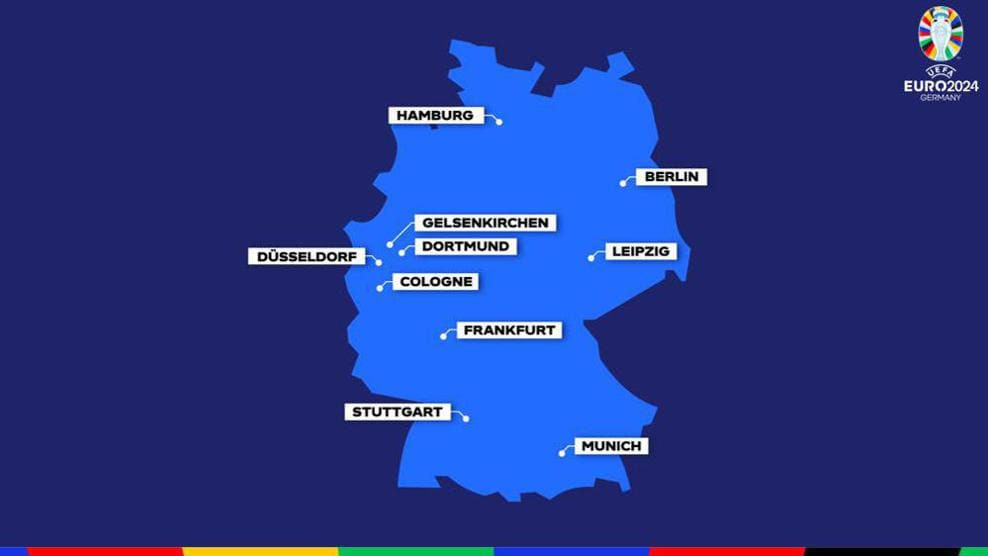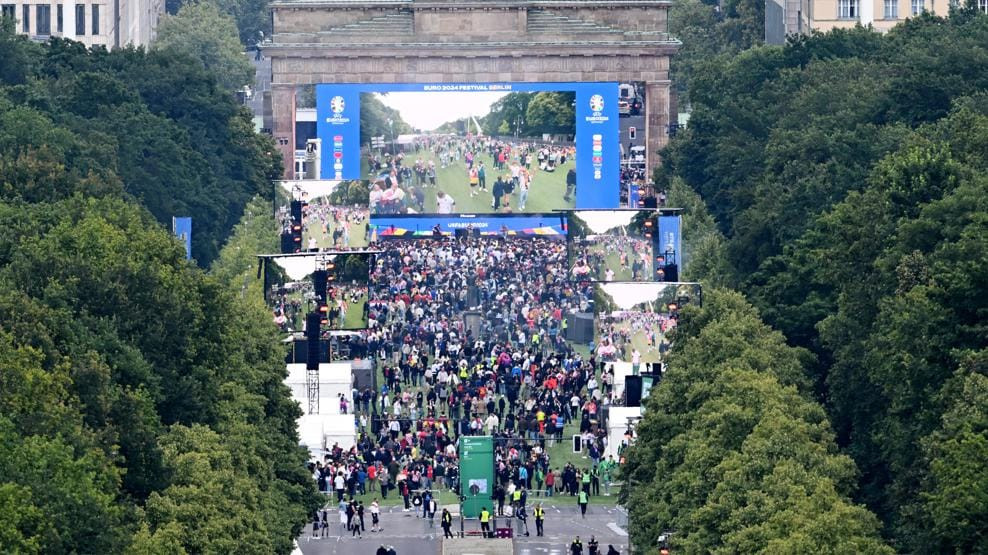The UEFA European Championship, commonly known as the EURO, is one of the most prestigious international football tournaments in the world. EURO 2024, the 17th edition of this quadrennial competition, recently captivated audiences globally. This article delves into the key aspects of EURO 2024, providing a comprehensive overview for those seeking to understand what this tournament was all about.
Host Nation and Tournament Timeline
EURO 2024 was hosted by Germany, marking the first time the reunified nation staged the tournament. West Germany previously hosted EURO 1988. The decision to award hosting rights to Germany was made at a UEFA Executive Committee meeting on September 27, 2018, where they outbid Türkiye. Germany also has a strong history of hosting major football events, including the 2006 FIFA World Cup.
The tournament unfolded across a month-long period, beginning on June 14, 2024, and culminating in the final on July 14, 2024. The group stage ran until June 26, followed by the knockout stages commencing on June 29. As the host nation, Germany automatically qualified and was placed in Group A, playing the opening match on June 14 at the Munich Football Arena against Scotland, securing a dominant 5-1 victory. Germany’s participation in EURO dates back to 1972 (including West Germany), and they boast a successful history with three championship titles (1972, 1980 as West Germany, and EURO ’96 as reunified Germany).
Participating Teams and Tournament Format
The EURO 2024 final tournament draw took place in Hamburg on December 2, 2023, setting the stage for the competition. The qualified teams were divided into six groups:
Group A: Germany, Scotland, Hungary, Switzerland
Group B: Spain, Croatia, Italy, Albania
Group C: Slovenia, Denmark, Serbia, England
Group D: Poland, Netherlands, Austria, France
Group E: Belgium, Slovakia, Romania, Ukraine
Group F: Türkiye, Georgia*, Portugal, Czechia
*Teams qualified through play-offs.
The tournament format mirrored that of UEFA EURO 2020. The top two teams from each of the six groups advanced to the round of 16. They were joined by the four best third-placed teams from the group stage, ensuring a competitive and exciting knockout phase.
Venues: Host Cities and Stadiums
Ten cities across Germany were selected to host EURO 2024 matches. These venues largely overlapped with those used for the 2006 FIFA World Cup, with the addition of the Düsseldorf Arena. Notably, the Munich Football Arena had the distinction of hosting EURO matches for the second consecutive tournament, having been a venue for UEFA EURO 2020 as well.
The EURO 2024 host cities and their stadiums were:
Berlin: Olympiastadion Berlin (Capacity: 71,000)
Cologne: Cologne Stadium (Capacity: 43,000)
Dortmund: BVB Stadion Dortmund (Capacity: 62,000)
Dusseldorf: Düsseldorf Arena (Capacity: 47,000)
Frankfurt: Frankfurt Arena (Capacity: 47,000)
Gelsenkirchen: Arena AufSchalke (Capacity: 50,000)
Hamburg: Volksparkstadion Hamburg (Capacity: 49,000)
Leipzig: Leipzig Stadium (Capacity: 40,000)
Munich: Munich Football Arena (Capacity: 66,000)
Stuttgart: Stuttgart Arena (Capacity: 51,000)
 The ten UEFA EURO 2024 host cities
The ten UEFA EURO 2024 host cities
The geographical spread of host cities across Germany for EURO 2024.
Sustainability Initiatives
Reflecting a growing emphasis on environmental and social responsibility in sports, EURO 2024 implemented various sustainability measures. UEFA aimed for the tournament to set a benchmark in environmental, social, and governance standards through dedicated initiatives and investments. Detailed information on these efforts can be found in the official Environmental, Social and Governance strategy document.
Fan Engagement and Atmosphere
To enhance the fan experience, each host city established dedicated fan zones equipped with public viewing areas. These zones provided a central hub for supporters to gather, watch matches, and celebrate the tournament atmosphere.
 Berlin
Berlin
Fans enjoying the EURO 2024 atmosphere in the Berlin Fan Zone at Platz der Republik.
Official Match Ball: FUSSBALLLIEBE
The official match ball of EURO 2024 was named FUSSBALLLIEBE, which translates from German to “love of football”. Unveiled in Berlin in November 2023 by UEFA and Adidas, FUSSBALLLIEBE incorporated Adidas Connected Ball Technology for the first time in a EURO tournament, providing enhanced data and insights during matches.
Mascot: Albärt the Teddy Bear
EURO 2024’s official mascot was Albärt, a teddy bear chosen through a public vote involving UEFA.com users and schoolchildren across Europe. Albärt secured 32% of the vote and was introduced to German fans in June 2023 prior to a friendly match.
 Albärt, the official UEFA EURO 2024 mascot
Albärt, the official UEFA EURO 2024 mascot
Albärt, the official mascot of EURO 2024, a teddy bear symbolizing fun and football spirit.
City Ambassadors and Volunteer Program
Each host city appointed city ambassadors, comprised of notable sports personalities and local figures, to represent and promote EURO 2024 within their respective locations. These ambassadors included Kevin-Prince Boateng (Berlin), Harald Schumacher (Cologne), and Roman Weidenfeller (Dortmund), among others.
Furthermore, EURO 2024 benefited from a large volunteer program. Out of over 146,000 applicants, 16,000 volunteers from 124 countries were selected to support the tournament operations across the host cities. These volunteers played a crucial role in welcoming guests and embodying the tournament’s motto: “United by football. Vereint im Herzen Europas.”
 There were 16,000 volunteers at EURO 2024
There were 16,000 volunteers at EURO 2024
Volunteers from around the world contributed to the success of EURO 2024 in Germany.
Official Song: FIRE
The official song for EURO 2024, titled FIRE, was a collaboration between Italian producers Meduza, American band OneRepublic, and German singer Leony. Released across streaming platforms, FIRE aimed to capture the energy and passion of football and music fans, blending house music, pop-rock, and pop elements.
eEURO 2024
Extending into the digital realm, UEFA eEURO 2024 took place, utilizing EA SPORTS FC™ 24 as the official platform. The eSports tournament commenced with online qualifiers in March 2024 and culminated in a final event in Germany, mirroring the timeline of the physical tournament.
In conclusion, EURO 2024 in Germany was a multifaceted event that went beyond just football matches. It encompassed cultural celebrations, sustainability efforts, fan engagement initiatives, and even ventured into the world of eSports. It was a testament to the unifying power of football and its ability to captivate a global audience.

